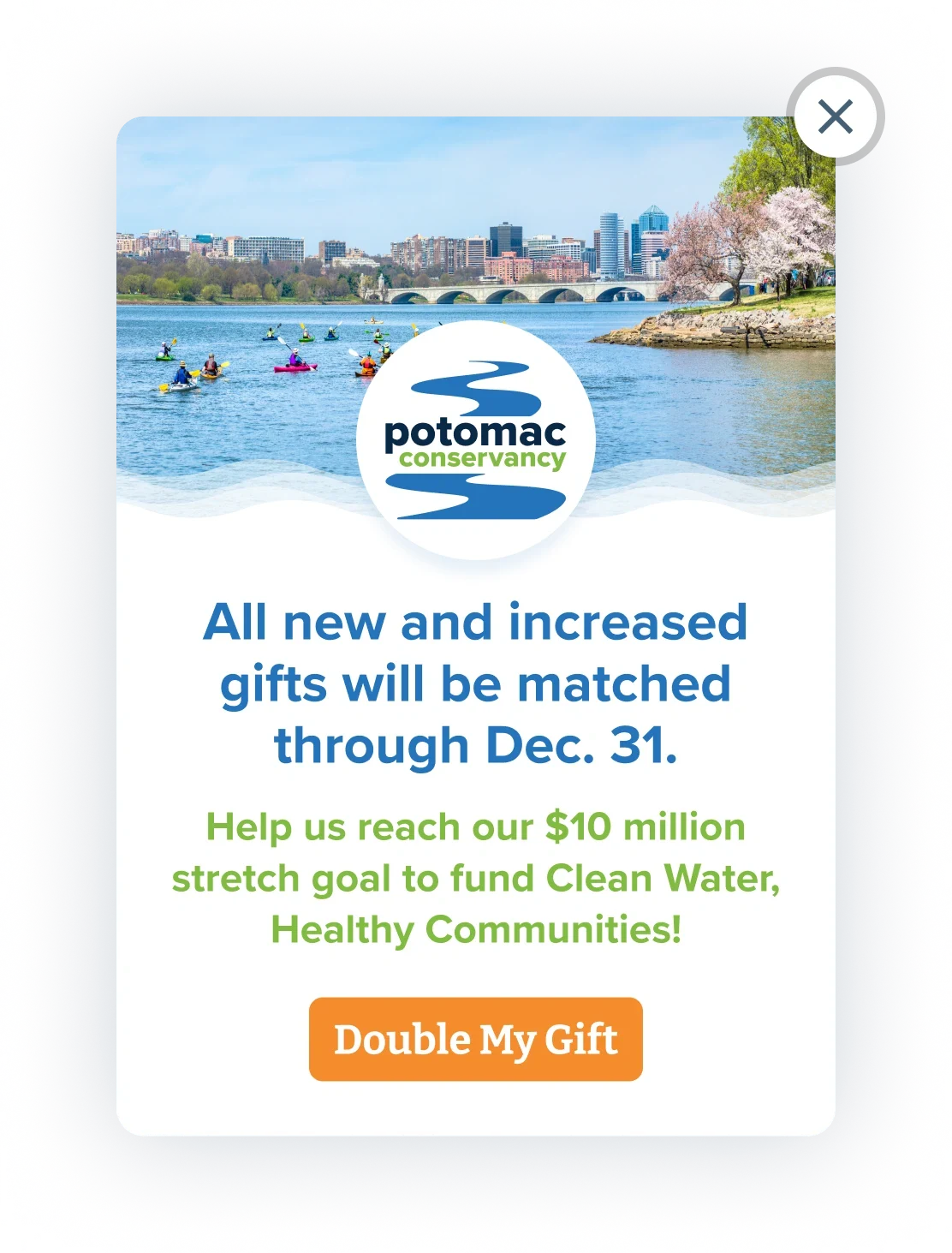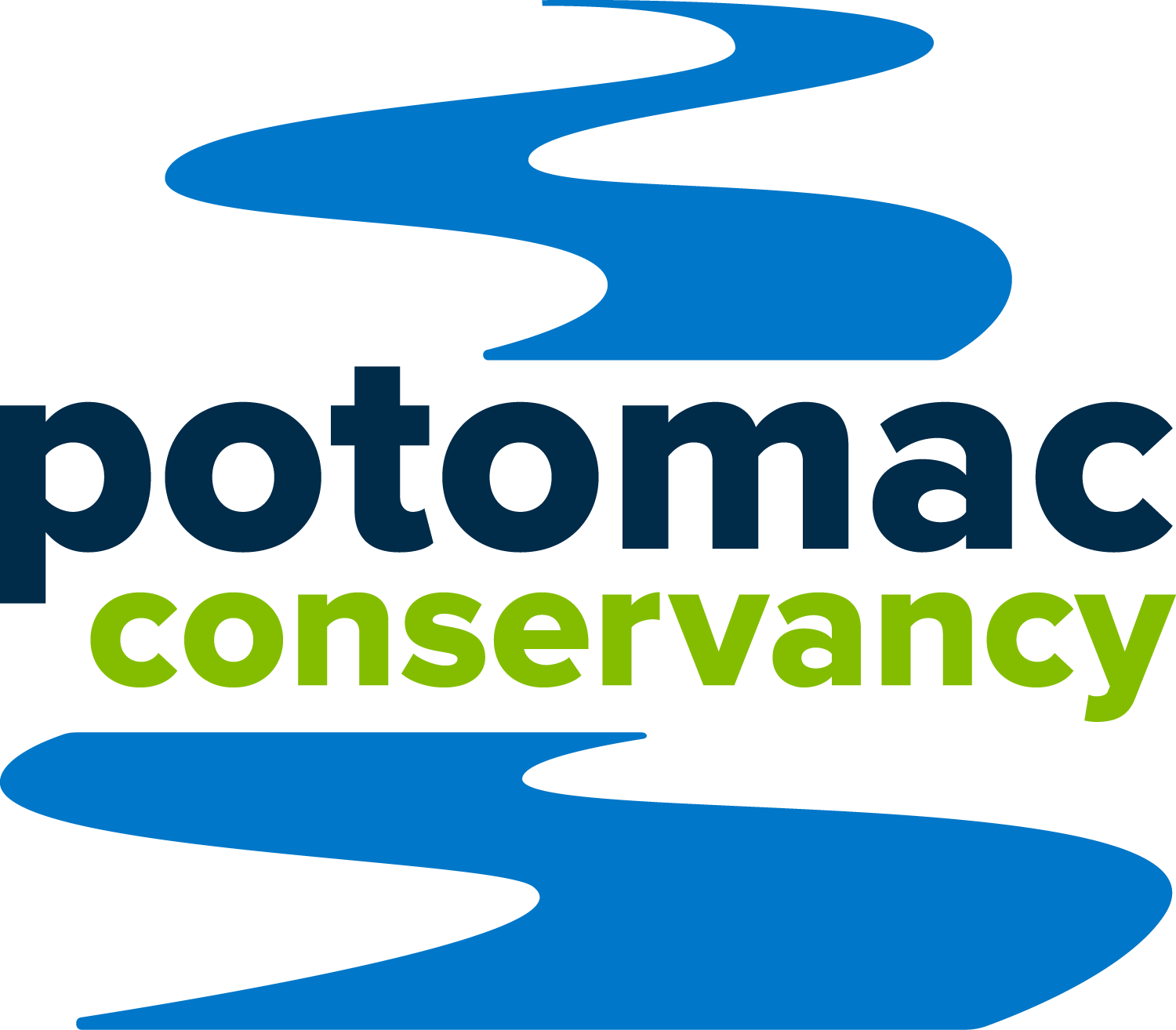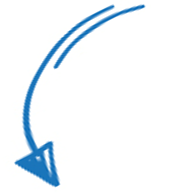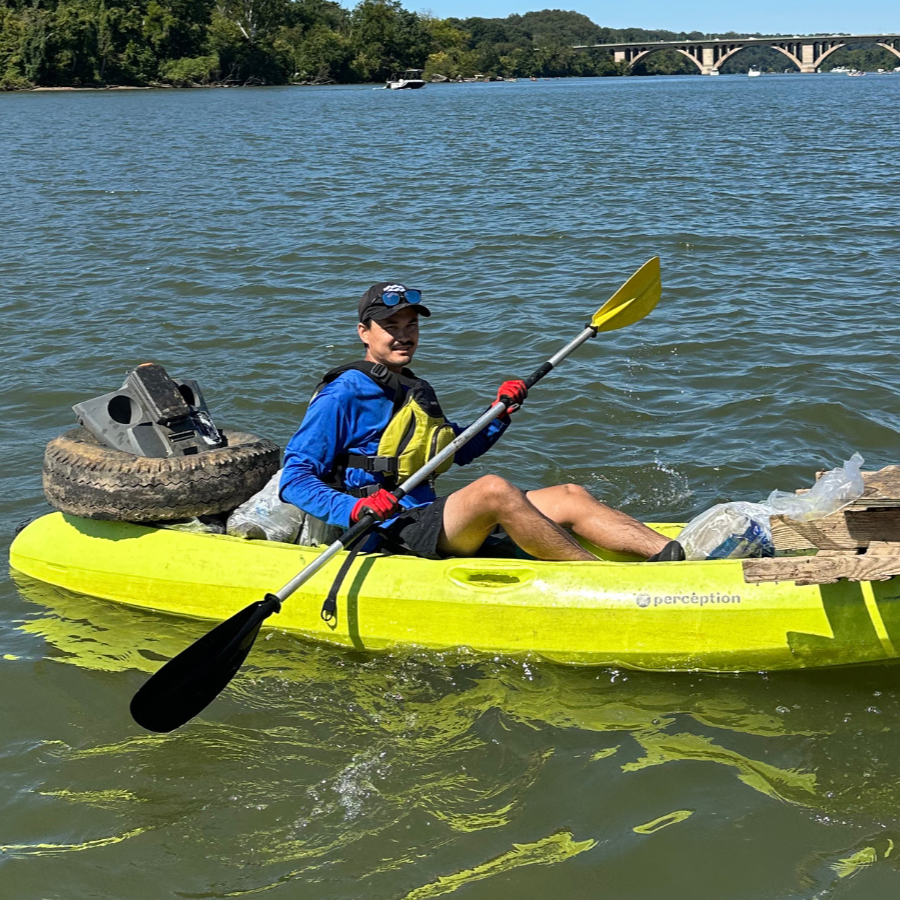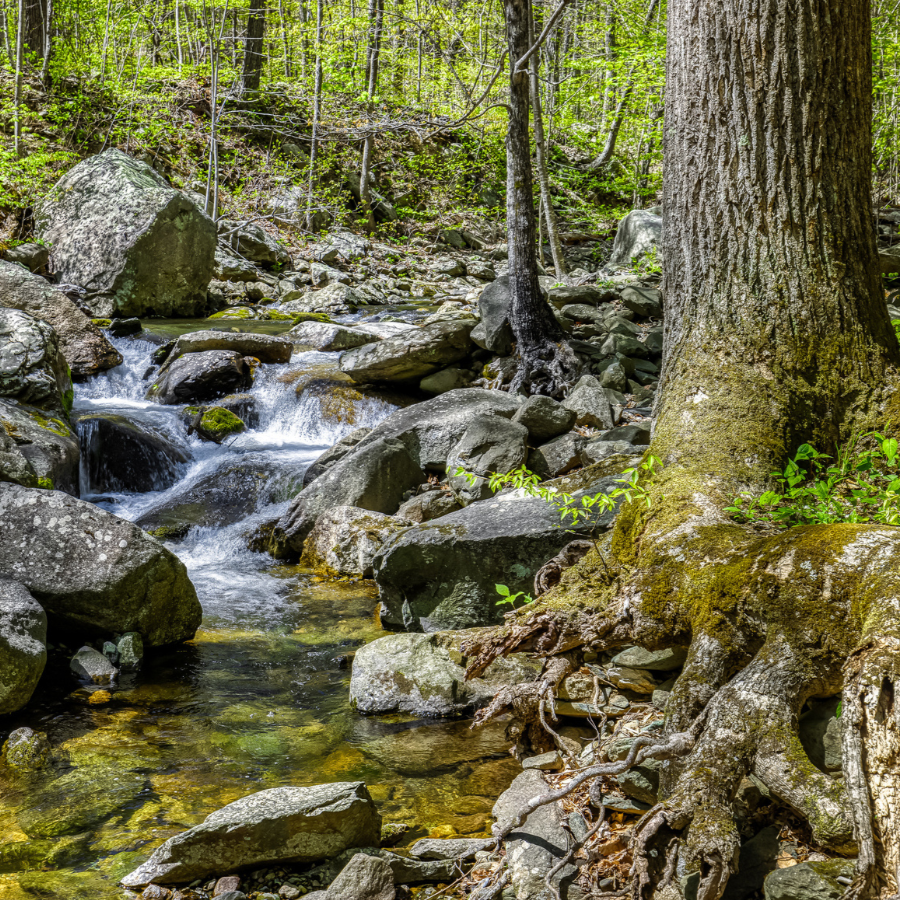The power of the “aha” moment in creating lasting change for the Potomac River
/How shoreline cleanups build our community’s muscle to create change in this world
ethan doyle (in blue shirt) with volunteers ahead of a river cleanup at roosevelt island in washington, dc
With spring in full swing, we’re excited to see the world around us changing right in front of our eyes. Increasing warmth, migrating birds, and blossoming wildflowers are getting us thinking about change – and what we want the future to look like for our local environment and the Potomac River.
Can we be the change we want to see in the world – and be changed for the better in the process?
Hear from Potomac Conservancy’s longtime Volunteer Leader Ethan Doyle why he decided to create change by hosting river cleanups, how it changed him personally, and what ripple effects our efforts can have when done in community with others.
Working on global issues by starting in our back yards
looking for ways to pick up trash from the c&O canal in dc’s georgetown
“I was born and raised in Fairfax County, Virginia, and even though I’ve traveled a lot for work, school, and my personal life, I consider myself homegrown to the DC metro area,” says Ethan.
“I work in sustainability consulting. I am fascinated by renewable energy technologies and help my clients decarbonize their operations and supply chains. But although a large part of my job is spent on addressing the climate crisis, it's mostly ‘on paper’ instead of in the field."
Ethan wanted to use his skills—leadership, public speaking, and a passion for sustainability—in a way that made a tangible difference closer to home.
“I live close to the Potomac River and love hiking and paddle boarding nearby. I learned about Potomac Conservancy one day when I was researching whether the river was swimmable and found the Potomac River Report Card. I thought to myself, “Why not do a little something for the river that has given me so much?”
Ethan decided to join one of our cleanups and immediately fell in love. “I felt a great sense of accomplishment and pride in seeing how much trash a small group can collect in a few hours. It is a really great effort-to-impact ratio.”
The power of the “aha” moment
welcoming volunteers and giving guidance ahead of a cleanup at roosevelt island
Ethan joined the Volunteer Leadership Team soon after. “One of the most rewarding parts of being a Volunteer Leader is when I give my little speech prior to getting the cleanup started. When talking about the “why” behind these events, I usually point out that the trash we pick up today would otherwise end up in our drinking water.”
“At that moment, I always see at least one person have this visible realization when they connect the dots between the Potomac River as a scenic recreation area and the Potomac River as a source of their drinking water,” smiles Ethan.
“I love seeing how river cleanups help people make meaningful connections between an abstract “environment” and the very real ways it impacts their personal life.”
An impact that ripples through the community
making an impact with volunteers at the c&O canal national historical park
Even though a two-hour cleanup feels really rewarding and provides a sense of achievement, its effect is not just one-and-done. Ethan believes that the event’s impact is multifaceted.
"On the one hand, we take a lot of trash from the river’s banks—last year, we collected close to 16,000 lbs! That impact is real, and you can see it. But on the other hand, you know that next time you go to the river there will be more. So the change, in a sense, isn’t permanent.”
“I think the more permanent change is that Potomac Conservancy’s community stewardship program encourages people to show up for their environment and shows that nature is not a “set it and forget it” system,” observes Ethan.
But still, “our actions have consequences, and the consequences of good actions are a cleaner and more livable world.”
A recent conversation with another volunteer confirmed to Ethan that one of the most important side effects of the time spent cleaning up the river’s shores is building the community’s muscle to go out and be the change they want to see in the world.
“As we were talking about it, it struck me that if you are the type of person who takes their time to go out and do something for the environment once, you are on your way to doing that more often. This made me realize that our impact goes way beyond the trash we pulled out of the river,” continues Ethan.
“It ties back to all of the other causes that all of our volunteers care about and are now more likely to show up for in the future.”
